This article previously appeared on Crossfader
It’s the TV Roundup! It’s hot! Stay inside! Watch TV!
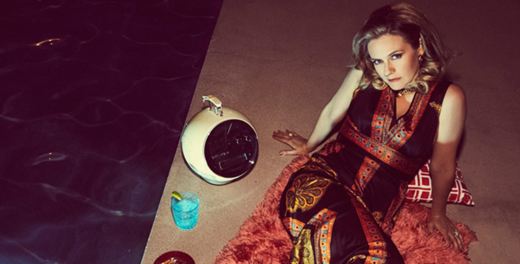
AMERICAN WOMAN (Paramount)
Boy, is Paramount’s television network really in the thick of it. Already a shaky idea considering the absolutely bonkers lineup of feature-length films they laid claim to in 2017, AMERICAN WOMAN is yet another misstep in their increasing collection of mild-to-major ones. One day, Bonnie (Alicia Silverstone) discovers that her husband is cheating on her. With a vague and shallow backdrop of second-wave feminism in the background, she goes about taking back what’s hers. I can see why AMERICAN WOMAN seemed like a good idea . . . or at least it would have five years ago. Though there are still innumerable steps we can take in terms of greater diversity and representation, TV is making much larger steps than the big screen in terms of focusing on voices we haven’t heard before, and unfortunately, this tale of a rich white woman scorned just doesn’t find any handholds to grasp onto in 2018. Is AMERICAN WOMAN competently acted? Yes. Does the period decor offer some generally fun aesthetic appeal? Yes. Is it well-paced and tonally sound? Well, actually, absolutely not. A bizarre and uncomfortable entry into that 30-minute “dramedy” space that’s rarely pulled off with efficacy, AMERICAN WOMAN seems to lean more into a supposed sense of comedic chops, but there are only “pleasant niceties” present instead of jokes, with absolutely nothing chuckle-worthy to help the medicine go down. We already know men are trash, and while we can obviously recognize that the ‘70s were full of blatant sexism, seeing a privileged upper-class citizen try to find agency in a society that is still pre-disposed to make sure she and her equally privileged friends are taken care of just doesn’t land. Only HEATHERS can save us now. [Thomas Seraydarian]
Verdict: Sh**
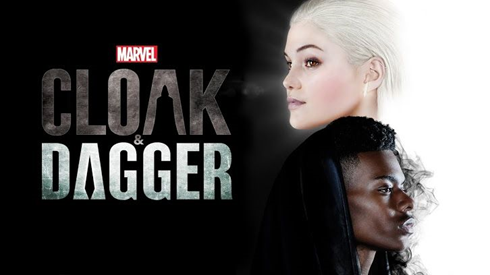
CLOAK & DAGGER (Freeform)
I don’t have the time or energy to devote much time to debating the MCU and its cultural effects, but it’s an inescapable topic in this day and age, and one that people much more invested than me have expressed smarter opinions on. Unfortunately, I’m afraid that CLOAK & DAGGER didn’t leave enough of an impact for me to feel like I have any less lukewarm of a holistic take on Marvel’s endeavors at large. It seems despite the sprawling storylines of their big bruisers, Marvel relegates most of its secondary and tertiary characters to the small-screen treatment: Cloak and Dagger are no different. The series revolves around a similarly traumatic night in the childhoods of Tandy Bowen (Olivia Holt) and Tyrone Johnson (Aubrey Joseph), a night that unknowingly binds them together and give them special powers that manifest themselves when they encounter each other in their young adulthoods. Tandy eventually discovers that she can emit light daggers and can access people’s hopes and desires when she touches them, while Tyrone discovers he can transport both himself and others into what is known as the Darkforce dimension, possessing the ability to see what people fear. It’s a perfectly functional show, and it’s nice to see Marvel’s increasing budget allow the special effects inherent in both Tandy and Tyrone’s powers to come across as fully realized. But even if it’s comparatively less putrid than in many of its peers, most of the dialogue coming out of Tandy and Tyrone’s mouths feels stilted and awkward, a huge misstep in a show that will spend plenty of time keeping up with them in their daily “normal” lives. What’s more, there’s something unsavory about CLOAK & DAGGER’s portrayal of police violence, as it comes across as shallow and contrived, projecting upsetting images as a mere convenience for the services of the plot. Merging into similarly distasteful waters with yet another inclusion of a rape scene designed to incite a female character’s internal arc, Tandy’s powers are also frustrating as portrayed here, as we get two quick cutaways to the best parts of characters introduced as bad, things feeling cheaply sentimental as a result. Thankfully, Holt and Joseph are stellar actors that are well worth paying attention to in other roles, but here, things fall flat. [Thomas Seraydarian]
Verdict: Sh**

KISS ME FIRST (Netflix)
Just like you, KISS ME FIRST’s Leila is a normal young person who likes to escape the benign realities of modern English life by donning a VR headset. As she soars through the sky and touches down in a grassy knoll during the show’s opening scene, there is something undeniably relatable about watching Leila beat the living hell out of her CG peer, Carmen. Leila has a crappy job as a dishwasher and her annoying roommate won’t stop practicing his Travis Bickle impression in the mirror. However, when she indulges her vice she is happy. She is special. One night, Leila’s VR character stumbles upon a group of players pleasuring each other in a clearing. The team calls itself Red Pill. One of the team members, Tess, is a player Leila has seen before in the game. Sparks fly before they’ve spoken a word to each other. When Tess visits Leila in real life outside of the restaurant where she works, Leila accepts her invite to a club. As the two drive back to Tess’s impressively chic 18th century townhouse, Netflix provides an unexpectedly honest portrayal of sexuality. When Leila encounters Red Pill again, she now finds herself defiant and willing to bend the game’s rules in order to maintain her bond with Tess and digitally indulge her sexual fantasies.
I may be naive (and possibly flat-out stupid) for not anticipating KISS ME FIRST’s erotic overtones going in. For some weird reason, I was expecting the show to feel like a gamer-oriented HUNGER GAMES. Instead, the show feels more fetishistic than engaging. Though its softcore-pornographic tendencies ensure that the show will reach an adult audience, I wish it focused on the more heartwarming aspects of romance than online lust. In the Tinder age, the prospect of meeting your lover through a VR platform does not seem far-fetched, but Leila giving into an online stalker’s carnal desires seems like a story that resonates more with internet voyeurs than it does normal viewers.
That said, despite its unbelievable characters and storyline, Netflix did not skimp on KISS ME FIRST. The VR effects are incredibly detailed and impressive. What the show lacks in conceivable storytelling, it makes up for with gorgeous digital art. The cinematography and color correction in its live action sequences are prepossessing as well, with director Misha Manson-Smith doing an excellent concurrent of job capturing the drab mundanities of suburban British life as Jonathan Entwistle did with THE END OF THE F**ING WORLD.
However, at the end of the day, KISS ME FIRST can’t help but feel like a bizarre blend of BLUE IS THE WARMEST COLOR and READY PLAYER ONE. It has the postmodern ethos of BLACK MIRROR, but based off of the portion of the season I watched, eschews the cautionary parabolic takeaways that make the show such a quintessential watch in the modern age. Ultimately, KISS ME FIRST is a one-of-a-kind story but lacks the depth of the tale it conjures. Though it may be a more rewarding watch for VR enthusiasts, I deem it shit. [Ted Davis]
Verdict: Sh**

POSE (FX)
Finally! A Ryan Murphy production that isn’t self-serving and based on performative allyship. POSE is the accurate, evocative, and much-needed breath of fresh air for not only the entertainment industry, but the queer community itself. For so long, the representation we see is coming-out or fear-of-being-outed narratives centered on cis, gay, white men. POSE slaps us with a history pop quiz, and reminds us of the trans woman of color who walked so that we, as a whole, could run. POSE chronicles New York amid the AIDS crisis, the rise of leisure luxury, and delves into the underground and institutional “ball” culture for predominantly queer and trans people of color. Groundbreaking performances from stars like MJ Rodriguez, Indya Moore, Ryan Jamaal Swain, and Evan Peters allow for every facet of the setting to be explored. Bianca (MJ Rodriguez) is a trans woman eager to start not just a “House,” but make a home for the youth of her community. Youth like Angel, played by Indya Moore, a trans woman who dreams of a place to call her own, and soon finds her golden ticket in Stan, played by Evan Peters. Stan is a white conservative businessman working for the (Fuck) Trump corporation, scraping to uphold the standards of the rapidly developing upper class. Damon, Ryan Jamaal Swain, is a young dancer cast out from his family for his identity, who finds himself homeless in New York, until, like Angel, he is brought in by Blanca to be a part of her “House.” POSE utilizes gorgeous production design, intricate costuming, and expert writing. Not to mention a stellar, stiletto-clad villain with cheekbones that could slit someone’s throat named Elektra, played by Dominique Jackson. (Spoiler: She’s a legend.) Although POSE takes place in the 1980s, the parallels to our society and the adversity faced is ever-apparent. Regardless of identity, with episodes directed by Janet Mock and an acute care unrivaled by any other program, POSE is something none of us can afford to miss. [Jesse Herb]
Verdict: Hit
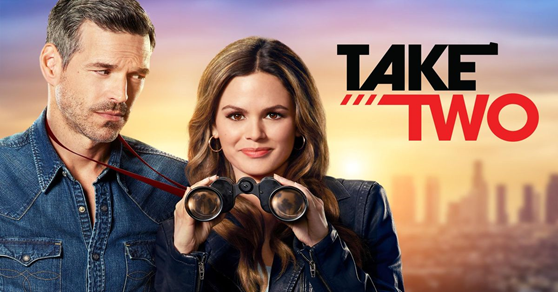
TAKE TWO (ABC)
TAKE TWO, ABC’s latest iteration of THE ODD COUPLE-meets-cop-procedural, is completely average, prescriptive, and has been done before with more multi-dimensional characters who were at least able to escape their own archetypes. Rachel Bilson plays a high-energy, overly enthusiastic, mildly incessant actress, and she is every bit the stereotype we’ve come to expect: it’s supposed to be surprising when she’s anything more than vaguely air-headed, as her world is so isolated in a bubble of celebrity she couldn’t possibly have depth or a complex origin that differentiates her from what we perceive someone who starred in a cop procedural called “Hot Suspect” to be. At one point, near the climax, she delivers an insightful, impassioned plea for justice at any cost, the first hint at something more below the surface, only to reveal it was a monologue her TV persona once gave. I mean, give the girl some credit! We are clearly going to learn over the course of the series to “not assume” people are what we expect them to be, or perhaps that she plays a down her wit as a form of self-preservation from a harsh world, but come on ABC, it’s 2018! Even on a pot-boiler, network cop show, haven’t we learned we like our women with a little complexity?
TAKE TWO is not awful, it’s just painfully unoriginal. While overtly formulaic still works for the appeal of the general population, you can garner that zing you get from solving the case alongside a character while still surprising your audience with a little depth. If you’re going to remake CASTLE with role-reversed, simultaneously amped-up and watered-down characters, at least flesh them out. I get the appeal of a slow-build character reveal, but you can do that—big mid-season finale cliffhangers to boot—while simultaneously starting off with at least two-dimensional characters. The writing is average, the characters are fine, the premise is tried and true: it’s perfectly watchable on a base-line level, dare I even say I would maybe throw it on in the background if I still had cable, but TAKE TWO is nothing to set your Tivos to. [Tapley Eaton]
Verdict: Sh**
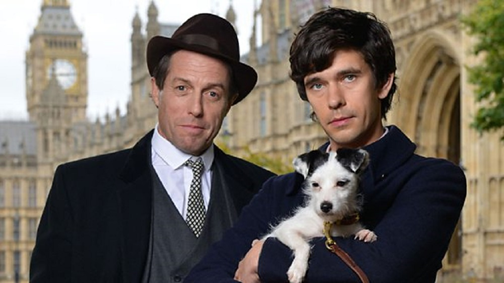
A VERY ENGLISH SCANDAL (Amazon)
No one nation can claim a monopoly on emotional repression, but the British have a reputation for being a stuffy, drab people. Politics is considered equally repressive and colorless. So when 1970s-era Liberal Member of Parliament Jeremy Thorpe arranged the attempted murder of ex-model Norman Scott, his former lover, everyone was quite surprised. While the title suggests a tale of royal family debauchery or a stolen tea kettle, A VERY ENGLISH SCANDAL gives us a well-rounded drama that delivers the terrors of being queer in the mid-20th century set before the backdrop of a power-crazed politician’s murder plot.
Jeremy (Hugh Grant) and Norman (Ben Whishaw) go through a fairly common pattern in their romantic partnership. Jeremy needs to keep everything a secret to protect his career, but Norman can’t stand being hidden. So while they enjoy a brief period of lustful whimsy, Norman inevitably leaves in a dramatic huff. While this structure can feel overly familiar, it quickly gives way to Norman and Jeremy both imploding their lives to defend their version of the truth.
After writing Jeremy’s mother a letter detailing their relationship, Norman disappears to Ireland to be a model. Jeremy spends that time acquiring a beard wife and moves up the ranks of Britain’s Liberal party. After spiraling out of control yet again, Norman makes a desperate call to Jeremy that gets answered by his wife. Feeling the grasp on his power slipping, Jeremy begins to plot Norman’s murder.
The ensuing murder conspiracy, murder attempt, and murder trial all whip by in the series’ all-too-brief three episodes, but it’s hard to argue when the story packs this much punch. Assuming you’re not a dumb idiot like me and read spoilers in Wikipedia articles, there’s no shortage of shock value, and boasts an array of well-crafted twists. A VERY ENGLISH SCANDAL more than deserves the three hours it asks for. [Dan Blomquist]
Verdict: Hit



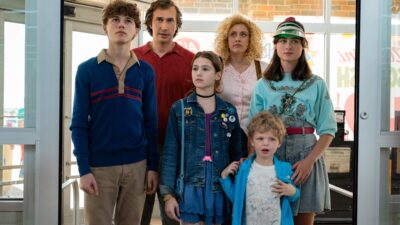
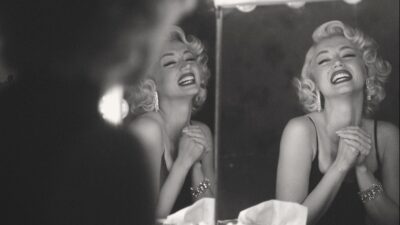

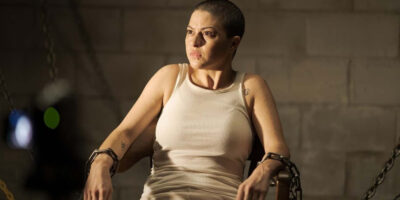



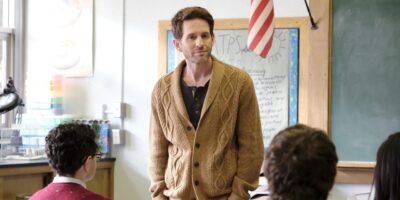
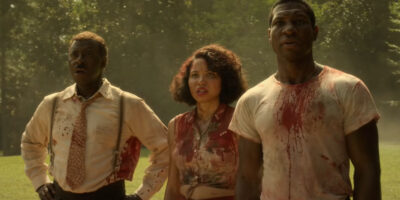




Comments